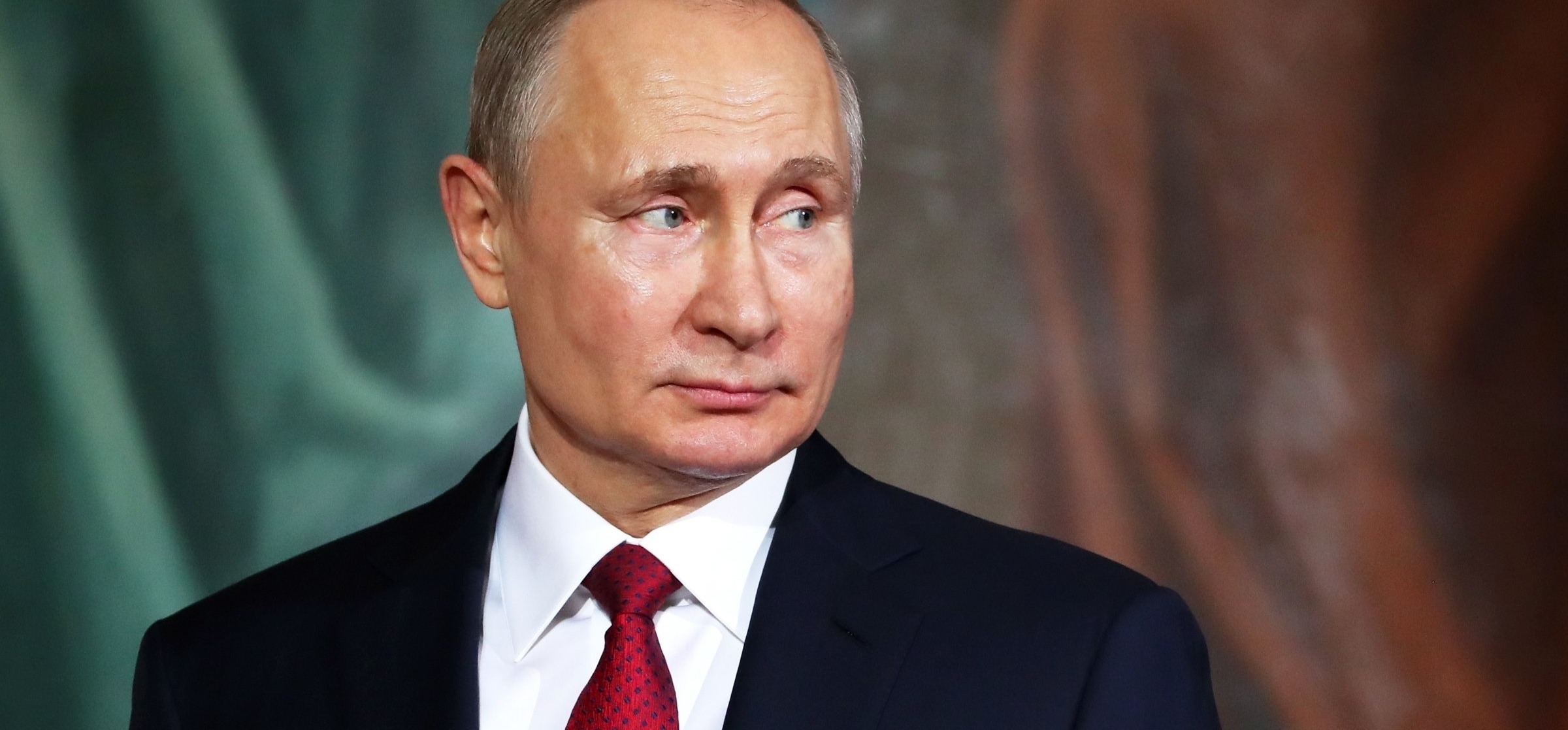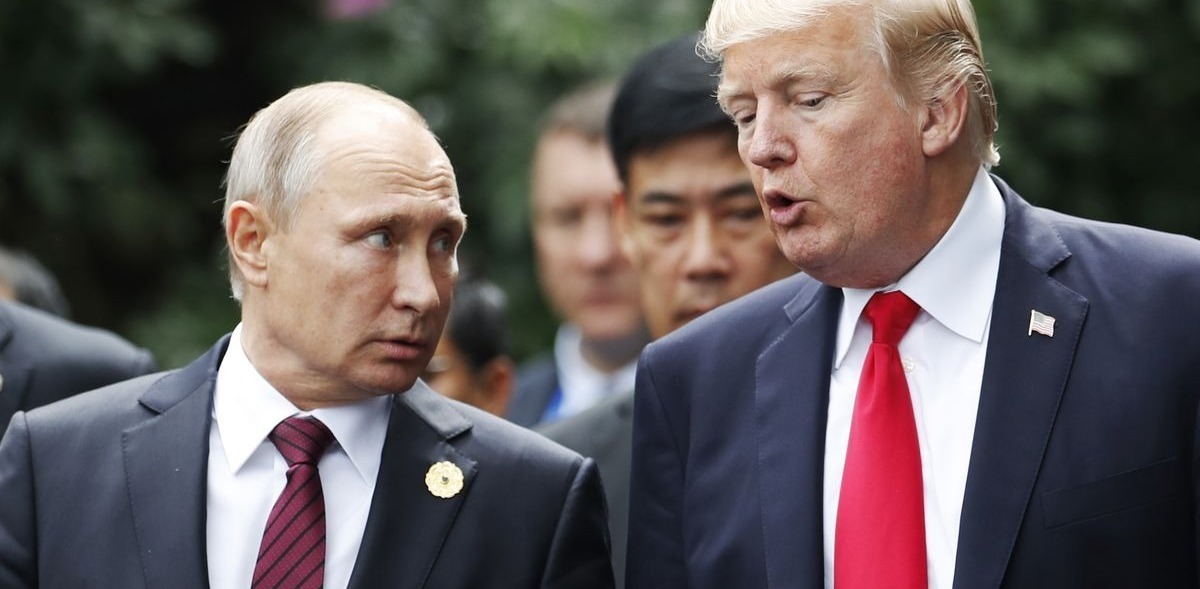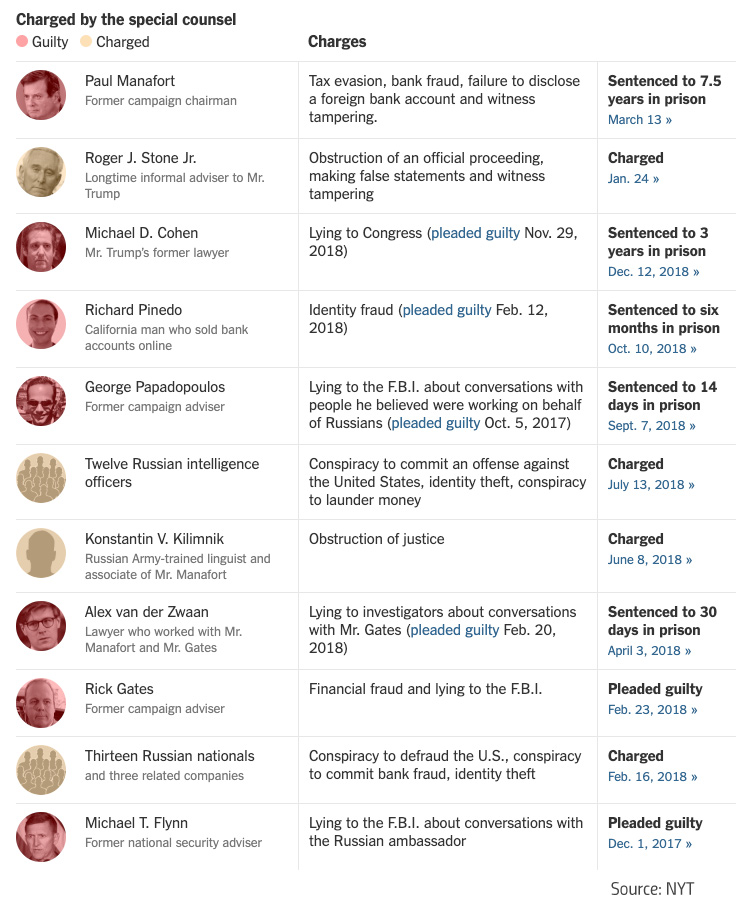February 14, 2019
The report is out, Mueller resigned, and on July 24th, the Former Special Counsel will testify in front of Congress. But how did we get here? And what could come next?

In April of 2019, a redacted version of the "Mueller report" (officially known as the Report on the Investigation into Russian Interference in the 2016 Presidential Election) was released to the public, confirming previous findings from the CIA, FBI, NSA, and other government agencies: Russia interfered in the 2016 presidential election.
For at least the last two years, the U.S. government has been working to discover what happened, who was involved, and how to prevent it from happening again.
It was a multi-pronged investigation that received almost non-stop media coverage—and it’s really complicated. We’ve updated our fact sheet to help you navigate through all the news and understand what’s actually going on—so you can get ready for Mueller’s testimony on July 17th.
What is the Special Counsel?
The Special Counsel is an independent attorney appointed to investigate sensitive matters that cannot be investigated by traditional means due to conflicts of interest. In the case of the Trump-Russia Probe, the President has authority over the Justice department which would generally handle this kind of investigation. Therein lies the conflict.
On March 2, 2017, Attorney General Jeff Sessions recused himself from the Russia inquiries due to his previous, undisclosed meetings with Russian officials. As a result, the decision to authorize the Special Counsel was made by Deputy Attorney General Rod Rosenstein on May 17, 2017, just eight days after President Trump fired F.B.I. Director, James Comey. Rosenstein appointed Robert Mueller, the F.B.I. Director under both the Bush and Obama administrations, to run the Special Counsel investigation.
What was Robert Mueller investigating, and what did he find?
The original authorization gave Robert Mueller authority to investigate and prosecute "any links and/or coordination between the Russian government and individuals associated with the campaign of President Donald Trump," as well as "any matters that arose or may arise directly from the investigation" and any other matters within the scope of a Special Counsel as laid out by the Department of Justice.
The Mueller Report is divided into two volumes. The first details the Russia’s interference with the 2016 presidential election and the allegations of coordination between Russia and the Trump campaign. The second looks at charges that the president obstructed justice by attempting to interfere with the Mueller investigation.
Volume 1:

The Mueller Report concluded that the Russian government interfered in the 2016 presidential election in a "sweeping and systematic fashion" and violated U.S. criminal law through two operations:
A targeted social media campaign led by the Russian Internet Research Agency (IRA) sought to “provoke and amplify political and social discord in the United States” while supporting then-candidate Trump and disparaging Democratic nominee Hillary Clinton.
The Russian government also carried out a cyber attack against the Clinton campaign by hacking into the email accounts and computer networks of the campaign, the Democratic Congressional Campaign Committee (DCCC), and the Democratic National Committee (DNC). The report notes that the Trump campaign “showed interest” in the leak of these materials and “welcomed” the damage they could do to Clinton’s campaign.
The investigation also uncovered links between these operations and the Trump campaign. In the end, Mueller did not find sufficient evidence to charge any Trump associates with a conspiracy charge—what the media and Trump refer to as “collusion.” However, individuals were charged with making false statements and obstructing justice with regard to this piece of the investigation, including the president’s longtime advisor Roger Stone and former campaign advisor George Papadapoulos.
Volume 2:

This volume investigated whether then-candidate Donald Trump or his inner circle obstructed justice through their actions before and during the Mueller investigation. And here’s where things get tricky.
Since taking office, President Trump has made several controversial decisions and statements, including the firing of former F.B.I. director, James Comey. Mueller investigated whether or not any of these actions, tweets, interviews, and more could be an effort by the president to obstruct and impede the investigation.
The Special Counsel's investigation intentionally took the approach that a sitting president cannot be charged with a crime. Therefore, Mueller and his team concluded that they could not indict the president for obstruction of justice.
That said, the report didn't conclude that President Trump was innocent either. Mueller offered 11 key instances in which Trump may have obstructed justice, from the firing of James Comey, to efforts to evade public disclosure about infamous Trump Tower meeting between Donald Trump Jr. and Russians offering dirt on Hillary Clinton.
Perhaps the most infamous line in Mueller’s report reads: “While this report does not conclude that the president committed a crime, it also does not exonerate him.” Essentially, Mueller provided resources and evidence of potential wrongdoing in his report; it’s now up to Congress to decide what to do with this information.
Who has been charged in the Russia Probe so far?
Nine Americans and 26 Russians have been charged so far in relation to the Special Counsel investigation.
Want More Videos? Subscribe! →

Did Trump collude with Russia?
The short answer: no.
While the media and the Trump administration commonly use the term “collusion,” what they are actually referring to is conspiracy—the idea that Trump's presidential campaign coordinated with Russia to commit certain crimes. Such coordination to commit an illegal act is an essential element of conspiracy.
Mueller’s investigation did not establish there was a conspiracy between the Trump campaign and Russia.
There was no sufficient evidence to charge any Trump campaign officials with any conspiracy crimes. However, the charges against 25 of the 26 Russian operatives include conspiracy charges, and the report found that 17 Trump campaign officials and the President interacted with Russians over 100 times.
Are there any other investigations happening?
Yes! There are multiple ongoing investigations stemming from the 2016 election that are not being led by the Special Counsel. These parallel investigations cover:
- The finances behind the Trump Organization, the Trump Foundation, President Trump’s inauguration, and those of President Trump’s former attorney Michael Cohen
- Maria Butina: The U.S. Attorney for the District of Columbia investigated the activities of Russian spy, Maria Butina, as well as the NRA. Maria Butina was sentenced to 18 months in prison for conspiring to act as a Russian agent.
- Foreign lobbying: The U.S. Attorney for the Eastern District of Virginia is investigating former National Security Advisor Michael Flynn’s lobbying on behalf of Turkey
- Potential tax crimes in the Trump family and violations of the Emoluments Clause of the U.S. Constitution.
In total, there are more than a dozen ongoing investigations into President Trump, his businesses, his campaign, and Russia. Eight people have been charged in these investigations so far, including Paul Manafort and Michael Cohen.
What’s next?
The House Intelligence and Judiciary Committees have subpoenaed a reluctant Mueller to testify on July 24th about the report.
Tune in to the action by joining our email list and following us on Facebook.